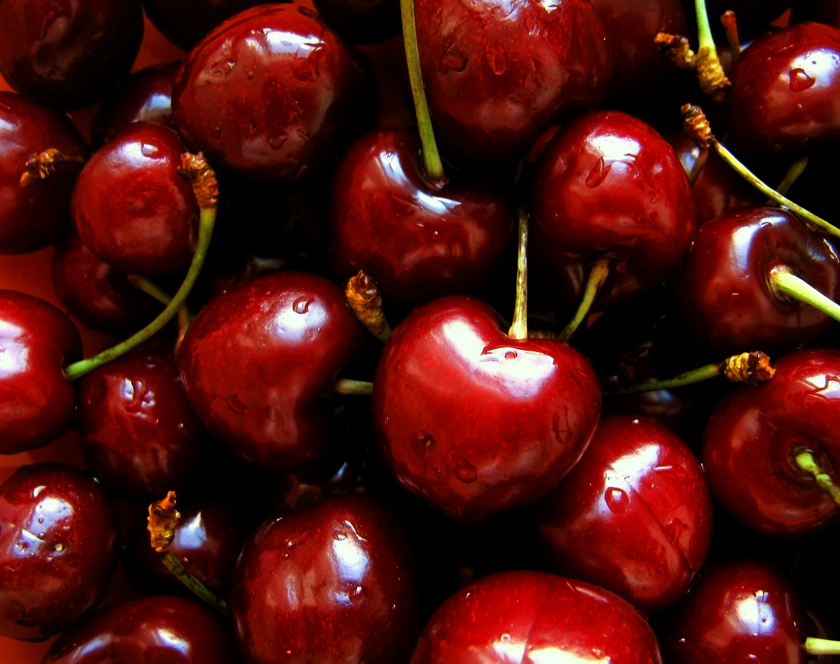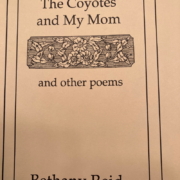Danusha Laméris, “Cherries”
 If I could, I would reproduce a dozen poems from Danusha Laméris‘s luminous book of poems, The Moons of August. Poems about losing a child, about losing a brother, about horses, about trees, about reading; somehow all hanging together and making up a coherent volume about grief and loss and healing.
If I could, I would reproduce a dozen poems from Danusha Laméris‘s luminous book of poems, The Moons of August. Poems about losing a child, about losing a brother, about horses, about trees, about reading; somehow all hanging together and making up a coherent volume about grief and loss and healing.
I first encountered her work at the AWP conference in Seattle last year, when she read for The Sun. I sat mesmerized, wanting to go someone to sit alone and write. So, I share this poem in the spirit of wanting to inspire you to write with me.
After much thought (and partly because it is so late in the day), I’ve decided to share just this one, very short poem. I hope it teases you just enough that you will look into her work. If you go to her website, you’ll find a link to Garrison Keillor reading her poem, “Fictional Characters,” which is one of the poems she shared at AWP.
CHERRIES
The woman standing in the Whole Foods aisle
over the pyramid of fruit, neatly arranged
under glossy lights, watched me drop
a handful into a paper bag, said how do you do it?
I always have to check each one.
I looked down at the dark red fruit, each cherry
good in its own, particular way
the way breasts are good or birds or stars.
Doesn’t everything that shines carry its own shadow?
A scar across the surface, a worm buried in the sweet flesh.
Why not reach in, take whatever falls into your hand.-Danusha Laméris


 My introduction to poet Ellen Bass was courtesy of Garrison Keillor’s
My introduction to poet Ellen Bass was courtesy of Garrison Keillor’s 
 Even though I seriously intended, long before poetry month began, to participate in the Great Poetry Giveaway commemorating National Poetry Month, I put off the communication necessary, and it’s now too late to be “official,” on
Even though I seriously intended, long before poetry month began, to participate in the Great Poetry Giveaway commemorating National Poetry Month, I put off the communication necessary, and it’s now too late to be “official,” on  1) Signed copies of my TWO books, Sparrow, published in 2012 by Big Pencil Press, and winner of the Gell Poetry Prize; AND The Coyotes and My Mom, published in 1989 by Bellowing Ark Press (and now out of print). If you already own my books, you’re still welcome to enter the drawing — you can give your new copies to a friend.
1) Signed copies of my TWO books, Sparrow, published in 2012 by Big Pencil Press, and winner of the Gell Poetry Prize; AND The Coyotes and My Mom, published in 1989 by Bellowing Ark Press (and now out of print). If you already own my books, you’re still welcome to enter the drawing — you can give your new copies to a friend. I want to remind you again that I am reading — one of five readers — at
I want to remind you again that I am reading — one of five readers — at